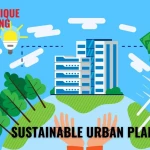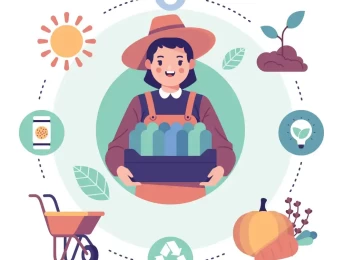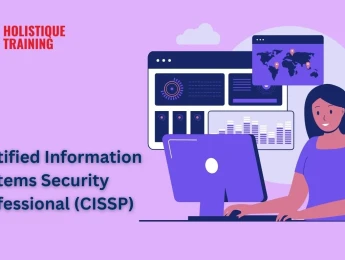This course provides a comprehensive understanding of sustainable agriculture practices and their critical role in promoting rural development. As global demand for food increases, the pressure on land, water, and rural communities intensifies. This training explores how sustainable farming techniques, community empowerment, and environmentally responsible land use can together build resilient, self-sufficient, and thriving rural societies.
Participants will examine integrated approaches to agricultural production, rural livelihoods, and ecosystem conservation. They will learn how to develop strategies for sustainable food systems, improve rural infrastructure, and support inclusive community-based development—all while addressing climate resilience and poverty reduction goals.
By the end of this course, participants will be able to:
- Understand the core principles of sustainable agriculture and rural development.
- Apply agroecological and climate-smart practices in farming systems.
- Design community-based rural development plans that foster economic empowerment.
- Analyse policy frameworks supporting rural sustainability and land stewardship.
- Promote gender equity, youth engagement, and social inclusion in rural programmes.
- Evaluate agricultural value chains and implement market access strategies.
- Integrate environmental conservation with rural development initiatives.
This course is ideal for:
- Agricultural development professionals and extension workers.
- NGO staff and policymakers in rural development.
- Environmental and sustainability consultants.
- Agribusiness leaders and social entrepreneurs.
- Rural planners and local government officials.
- Researchers and academics in agriculture, environment, and development studies.
Participants will engage in a blended learning approach combining interactive lectures, real-world case studies, group discussions, and practical design workshops. Simulation activities and role-playing exercises will be used to demonstrate how sustainable practices can be adapted to different rural contexts. Field-based examples will provide concrete models of success, and each participant will work on a mini-project relevant to their own region or organisation.
Day 5 of each course is reserved for a Q&A session, which may occur off-site. For 10-day courses, this also applies to day 10
Section 1: Introduction to Sustainable Agriculture and Rural Systems
- Defining sustainable agriculture and rural development.
- Interdependence between agriculture, environment, and rural livelihoods.
- Historical evolution of rural development concepts.
- Current global challenges and rural poverty dynamics.
- Agricultural policy and sustainability linkages.
- Introduction to SDGs and food system transformation.
Section 2: Agroecological and Climate-Smart Practices
- Soil health and organic fertilisation techniques.
- Water-efficient irrigation and rainwater harvesting.
- Integrated pest management and crop rotation.
- Agroforestry and biodiversity-friendly farming.
- Precision farming and climate-resilient technologies.
- Low-input farming for smallholder sustainability.
- Monitoring environmental impact in agriculture.
Section 3: Community-Based Rural Development
- Principles of participatory rural development.
- Mobilising local knowledge and leadership.
- Gender mainstreaming and youth involvement.
- Enhancing access to rural education and health services.
- Strengthening rural institutions and cooperatives.
- Addressing rural-urban linkages and migration.
- Promoting decentralisation and local governance.
Section 4: Economic Empowerment and Market Access
- Developing inclusive agricultural value chains.
- Improving access to credit and microfinance.
- Post-harvest handling and storage solutions.
- Rural entrepreneurship and agri-business models.
- Digital tools for rural market connectivity.
- Food processing and rural employment opportunities.
- Linking smallholder farmers to national and global markets.
Section 5: Environmental Conservation and Land Use Planning
- Land tenure systems and sustainable land management.
- Natural resource governance in rural areas.
- Protecting watersheds, forests, and rangelands.
- Managing climate risk in agricultural zones.
- Integrating conservation into farming practices.
- Ecosystem-based adaptation for rural development.
- Landscape-level planning for resilience.
Section 6: Policy and Institutional Frameworks
- Overview of national and international rural development policies.
- Tools for analysing rural development programmes.
- Role of NGOs, donors, and community-based organisations.
- Monitoring and evaluation of sustainable agriculture initiatives.
- Impact assessments and sustainability indicators.
- Case studies of rural development policy successes.
- Designing policy briefs and advocacy plans.
Section 7: Capstone Projects and Action Planning
- Identifying local or organisational development challenges.
- Designing a sustainable rural development initiative.
- Developing monitoring frameworks for your project.
- Peer reviews and expert feedback.
- Final presentation of capstone project and learning reflection.
Upon successful completion of this training course, delegates will be awarded a Holistique Training Certificate of Completion. For those who attend and complete the online training course, a Holistique Training e-Certificate will be provided.
Holistique Training Certificates are accredited by the British Accreditation Council (BAC) and The CPD Certification Service (CPD), and are certified under ISO 9001, ISO 21001, and ISO 29993 standards.
CPD credits for this course are granted by our Certificates and will be reflected on the Holistique Training Certificate of Completion. In accordance with the standards of The CPD Certification Service, one CPD credit is awarded per hour of course attendance. A maximum of 50 CPD credits can be claimed for any single course we currently offer.
- Course Code IND06-106
- Course Format Classroom, Online,
- Duration 5 days









